About The Door is Open Counseling Center Quincy
Welcome to The Door is Open Counseling Center Quincy. We offer a variety of services to help those struggling with addiction and other mental health issues. We have programs for adults, young adults, elders, and the LGBTQ community. We also offer military and veteran rehab programs. Our services include outpatient and aftercare support, as well as cognitive behavioral therapy, creative arts therapy, dialectical behavior therapy, eye movement desensitization and reprocessing, family therapy, fitness therapy, group therapy, hypnotherapy, individual therapy, recreational therapy, and trauma therapy. We are here to help you on your journey to recovery and healing. Thank you for choosing us.
Addiction Treatment Programs
Alcohol Rehab
If you’re looking to break free of dependence on alcohol, a high-quality alcohol rehab in Massachusetts can help. Common services include counseling and classes on coping skills, emotional management, communication, and other key life skills. Alcohol rehab programs can provide inpatient or outpatient treatment.
Dual Diagnosis
During dual diagnosis treatment in Massachusetts, you’ll receive integrated care for your mental health and substance use concerns, helping you establish long-term recovery. Dual diagnosis programs may offer detox, inpatient treatment, and/or outpatient care. The key is that they provide integrated treatment for both mental health symptoms and substance use.
Opioid Addiction
A high-quality rehab in Massachusetts helps people gain the skills they need to overcome opioid addiction and maintain long-term sobriety. Drug rehab may include detox, inpatient treatment, and/or outpatient care. You’ll learn the roots of addiction and learn how to build a substance-free life.
Young Adult Rehab
Young adult rehab programs in Massachusetts can help young people make healthier life choices and avoid common mistakes. Some of the common services will include counseling and classes on coping skills, emotional management, communication, and other key life skills. Young adult programs can provide inpatient or outpatient treatment.
Adult Program
When people join an adult program in Massachusetts, they learn about topics such as employment and raising a family while receiving treatment. Some of the common services will include counseling and classes on coping skills, emotional management, communication, and other key life skills. Adult programs can provide inpatient or outpatient treatment.
LGBTQ Friendly Rehab
If you’re looking for a safe space to work on your recovery as an LGBTQ+ person, consider finding an LGBTQ+ friendly rehab in Massachusetts. In addition to typical detox, inpatient treatment, and outpatient care, an LGBTQ+ friendly program may also provide classes about building healthy relationships, overcoming rejection, managing trauma triggers, and more.
Military Rehab
The best way to achieve long-term recovery, if you are a service member or veteran in Massachusetts, may be to find a military rehab. Some of the common services will include counseling and classes on coping skills, emotional management, communication, and other key life skills. Military programs can provide inpatient or outpatient treatment.
Men's Rehab
Men’s rehabs in Massachusetts address a wide range of substance use issues while also helping clients with gender-specific issues. Some of the common services they include are counseling and classes on coping skills, emotional management, communication, and other key life skills. Men’s programs can provide inpatient or outpatient treatment.
Women's Rehab
A women’s rehab in Massachusetts helps clients build same-gender friendships, overcome substance use, and learn new life skills. Some common services include counseling and classes on coping skills, emotional management, communication, parenting, and other key life skills. Women’s programs can provide inpatient or outpatient treatment.
Senior Rehab
Insurance Coverage
Self-pay options
In Massachusetts, you can use self-pay, also known as private pay, to cover the costs of rehab. Payment structure may vary depending on the level of care, but you can use a medical loan, write a check, or send money electronically.
Sliding scale payment assistance
How do you pay for rehab in Massachusetts? A good option is to look for programs with a sliding scale payment plan. Whether you need detox, inpatient treatment, or outpatient care, you can qualify for a lower cost based on your income and family size.
Military insurance
For those with military insurance, using your coverage to pay for treatment in Massachusetts can make rehab more accessible. Your insurance plan can pay for some or all of the costs of rehab, especially if you choose a center that’s in the plan’s network. Be sure to check with the insurer to get full details.
Financing available
If financing options are available, they can be a good way to pay for substance use treatment in Massachusetts. Financing allows you to spread out the cost of treatment over time or may help you get a lower fee. Options include payment plans, scholarships, grants, and medical loans.
Private insurance
Paying for rehab in Massachusetts can be done in multiple ways, including using private insurance. Because plans vary, be sure to contact the insurer to find out what centers are in-network with your coverage and to find out what out-of-pocket costs you might be responsible for.
Employee Assistance Program
Levels of Care
- 1
Outpatient Rehab
During outpatient treatment in Massachusetts, each client attends multiple hours of care per week while living independently outside of treatment. Outpatient treatment is commonly a follow-up to residential treatment and may be used to help with skill-building, education, and to practice your new habits in daily life.
- 2
Aftercare Support
Accessing aftercare in Massachusetts is a way to reduce the risk of relapse, helping you establish long-term recovery. It’s common for a treatment program to offer aftercare support, which may include employment training, help with housing, alumni support groups, and more.
- 3
Intervention Services
Intervention services professionals can help you plan an intervention in Massachusetts to encourage your loved one to seek treatment. Intervention specialists help you plan and execute the intervention, and they can also help your loved one find the right treatment program.
Therapies
Cognitive Behavior Therapy
Not everything we think is true or helpful. Cognitive behavioral therapy in Massachusetts teaches you to challenge distorted thinking so you can see things more clearly and choose healthier responses. CBT is a common part of both inpatient and outpatient substance use treatment and may be used to help with skill-building, overcoming problematic behavior, and managing substance use triggers.
Creative Arts Therapy
Creative arts therapy in Massachusetts gives you a unique way to explore strong emotions in a healthy way, allowing you to create positive change. Creative arts therapy is commonly part of inpatient or intensive outpatient treatment, and is often used to help clients express things that may not be easy to talk about.
Dialectical Behavior Therapy
People want to improve their situation but don’t always know how. Dialectical behavioral therapy in Massachusetts teaches you healthy coping mechanisms and improves your confidence so you can build a better life. DBT is a common part of both inpatient and outpatient substance use treatment and may be used to help with skill-building, overcoming problematic behavior, and managing substance use triggers.
Family Therapy
During family therapy in Massachusetts, clients and their loved ones can address dysfunctional relationships, resentments, and conflicts in order to create healthier relationships that support the client’s recovery. Family therapy sessions generally last 60 to 90 minutes and may include discussing marital issues, codependency, grief, domestic violence, trauma, and other topics that impact families. The goal is to create healthier relationships that can support recovery.
Group Therapy
During group therapy in Massachusetts, each client has a chance to share their unique experiences and feelings about the discussion topic. This creates accountability and support. Group therapy is a common part of both inpatient and outpatient substance use treatment, and may be used to help with skill-building, processing, and to present educational information.
Individual Therapy
You’re not alone as you work through addiction in Massachusetts. Individual therapy gives you a professional who’s on your side to help you build a new life. Individual focuses on improving both behavioral and emotional health. You may explore thought processes, develop motivation to change, and/or explore past events that may have played a part in your substance use.
Recreational Therapy
Recreational therapy in Massachusetts involves activities that allow you to work with others, relax in nature, and learn problem-solving skills. Recreational therapy brings fun, adventure, and teamwork into the treatment program, equipping you to build new, positive habits.
Trauma Therapy
During trauma-informed therapy in Massachusetts, you’ll be given the tools you need to manage your emotions and understand what happened in a healthier way. When you receive trauma-informed therapy, it may include peer support, grief counseling, medications to support mental health, and developing healthier responses to emotional triggers.
Eye Movement Desensitization and Reprocessing
Fitness Therapy
Hypnotherapy
Accreditations
Location
Contact The Door is Open Counseling Center Quincy
Top Drug Rehab Centers in Massachusetts
-
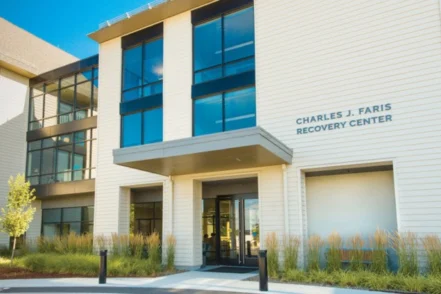 Massachusetts
MassachusettsNew England Recovery Center
153 Oak Street Westborough, Massachusetts 1581
-
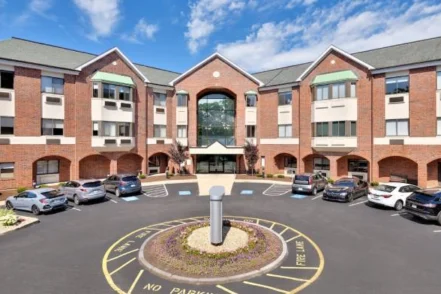 Massachusetts
MassachusettsBedrock Recovery Center
1 Meadowbrook Way Canton, Massachusetts 02021
-
 Massachusetts
MassachusettsNew Horizons Medical
1180 Beacon Street, Suite 3C Brookline, Massachusetts 02446
-
 Massachusetts
MassachusettsTopsail Addiction Treatment
140 Haverhill Street, Suite 8 Andover, Massachusetts 01810
-
 Massachusetts
MassachusettsAvenues Recovery Center at New England
81 Hall Street Concord, Massachusetts 03301
-
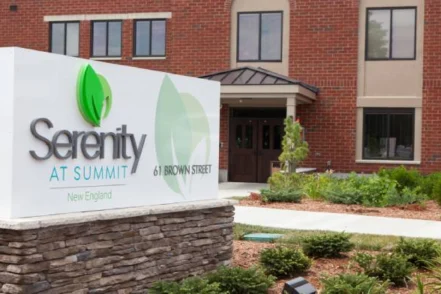 Massachusetts
MassachusettsSerenity at Summit New England
61 Brown Street Haverhill, Massachusetts 01830
-
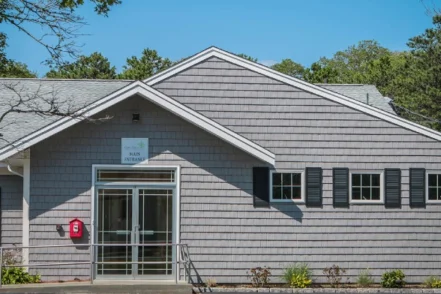 Massachusetts
MassachusettsRecovering Champions
279 Brick Kiln Road Falmouth, Massachusetts 02536
-
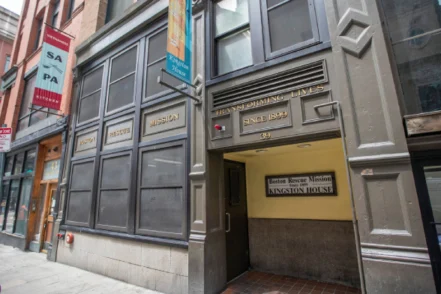 Massachusetts
MassachusettsBoston Rescue Mission Outpatient Counseling
39 Kingston Street Boston, Massachusetts 02111
-
 Massachusetts
MassachusettsSSTAR Stanley Street
386 Stanley Street Fall River, Massachusetts 02720
-
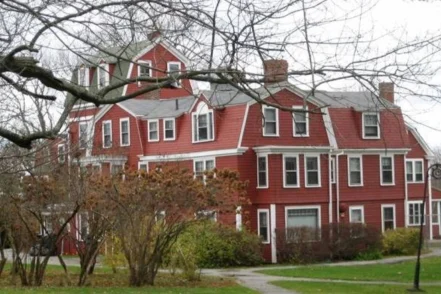 Massachusetts
MassachusettsBaldpate Hospital
83 Baldpate Road G Georgetown, Massachusetts 01833
-
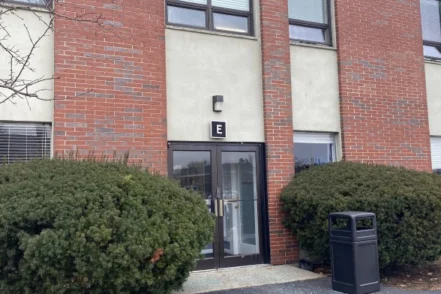 Massachusetts
MassachusettsAftermath Addiction Treatment Center
607 North Ave , Suite 11 E Wakefield, Massachusetts 01880

